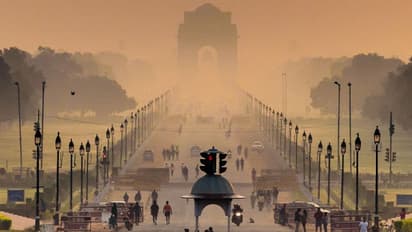10 ailments to watch out for amid Delhi's severe air quality
Published : Nov 03, 2023, 07:46 PM IST
The air quality has deteriorated to the point where comparisons to a 'gas chamber' have been made. The city has experienced over five consecutive days of 'very poor' air quality, raising concerns about various health issues due to prolonged exposure to pollutants
Stay updated with the Breaking News Today and Latest News from across India and around the world. Get real-time updates, in-depth analysis, and comprehensive coverage of India News, World News, Indian Defence News, Kerala News, and Karnataka News. From politics to current affairs, follow every major story as it unfolds. Get real-time updates from IMD on major cities weather forecasts, including Rain alerts, Cyclone warnings, and temperature trends. Download the Asianet News Official App from the Android Play Store and iPhone App Store for accurate and timely news updates anytime, anywhere.
Read more Photos on
